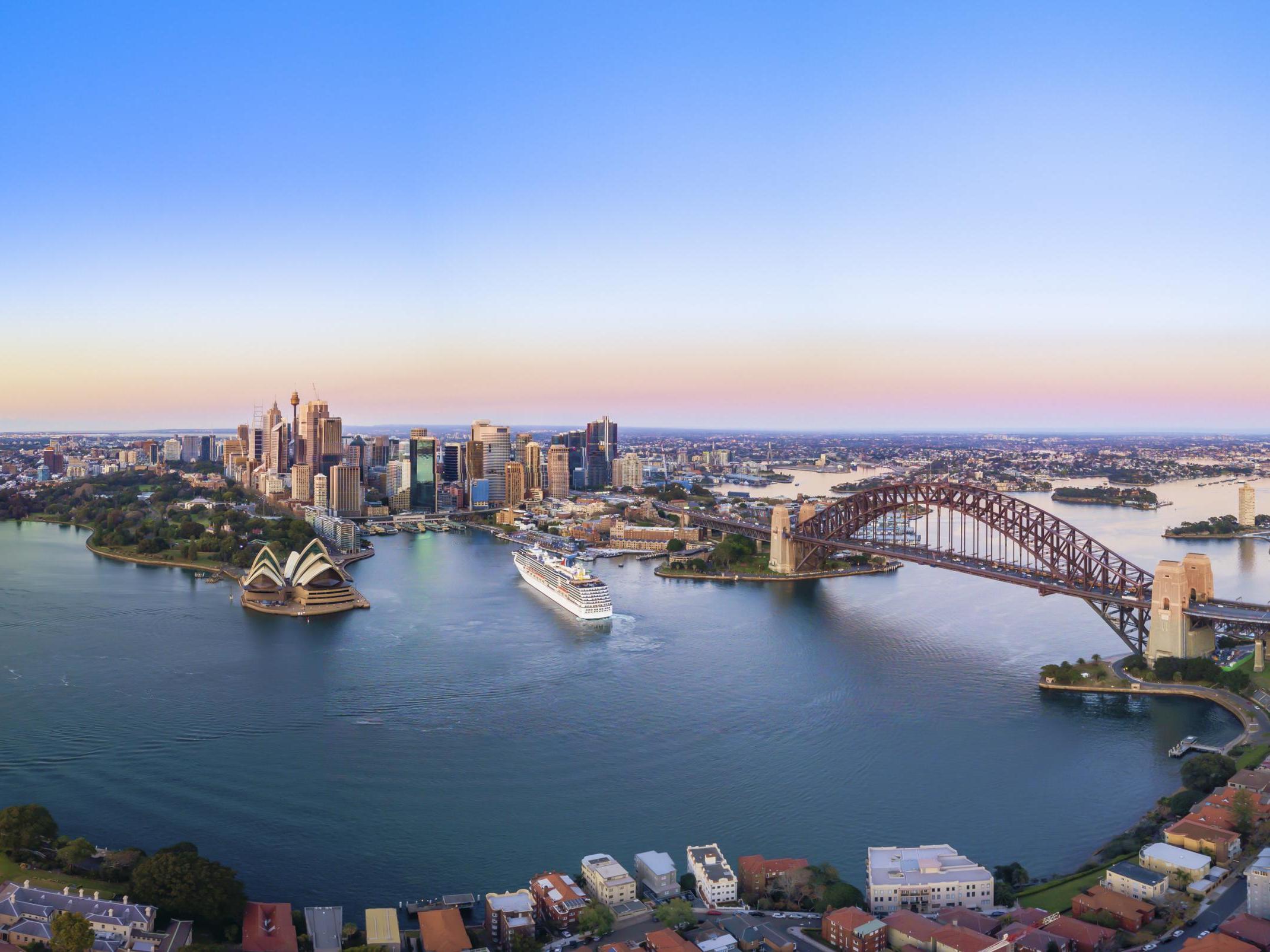My Eurostar is cancelled due to strikes – is it worth rebooking my Paris day trip?
Simon Calder answers your questions on rail fare rises, the best month to visit Sri Lanka and how to get a good deal on a flight to Australia


Q I have booked a day trip from London to Paris on the Eurostar for my birthday on Friday, but have just received a text to say my return train has been cancelled due to strike action. They have given me three options: pick a different train time on the same day, free of charge; postpone the journey; or cancel altogether for a full refund.
Is it a good idea to pick a different train time on 10 January, or is it likely to get cancelled again? And is it actually worth visiting Paris with all the disruption that’s happening?
Lucy H
A The nationwide strike in France against President Macron’s proposed pension reforms began a month ago and have caused severe disruption to transport to, from and through the country.
While no Eurostar staff are taking industrial action, rail workers have stopped work for longer than in any dispute since 1968.
Their walk-out affects the number of trains that are permitted to run on the high-speed network, and has forced the cross-Channel rail operator to cancel some departures on each day. Sometimes the count has been as high as 10 trains, but that has now settled down to an average of three or four. I have not been aware of additional cancellations being made at short notice, so I would not fret about the risk that your booking might be further disrupted.
Nor would I recommend postponement; you will have more flexibility if you cancel and claim a full refund.
The question of how much fun you would be able to have in the French capital while it is in disarray depends on whether you are happy to dispense with most public transport.
The typical pattern is that lines 1 and 14 of the Metro are working normally, “avec risque du saturation”, while the rest are struggling to offer even a half-decent rush-hour service. Some RER (suburban rail) services are running through Paris but should not be relied upon.
Now, assuming Friday’s weather turns out to be relatively benign (and the forecast from here says it should be), then you can have a perfectly pleasant day walking or, for longer distances, using the excellent Vélib’ on-demand bike system. This works like London’s Santander Cycles scheme, and costs €5 for one day, including unlimited rentals of half-an-hour or less.
The next consideration: will you be able to enjoy the French capital’s attractions? If you have set your heart on reaching the top of the Eiffel Tower, I am sorry to say it is closed for renovations until 7 February.
The Louvre, meanwhile, is open but warns: “The museum may open later and some exhibition rooms may remain closed.”
And the Musee d’Orsay is closing early, at 5pm, for staff to get home.
Yet most cafes, restaurants and shops are opening normally, and I would certainly go ahead with a trip. At this time of year, Paris is normally relatively empty of tourists – and, with many visitors deterred by strikes, you may have the city to yourself.

Q I know that rail fares go up on the first working day of the year. I am planning a January weekend away in the Lake District from London. Would it have made sense to book tickets ahead of the increase to save money?
Cathy A
A As is traditional, rail fares across the UK increase on the second day of the new year by (almost) the RPI measure of inflation as it stood in the previous July.
The Rail Delivery Group has increased fares by an average of 2.7 per cent. That covers “regulated” rail fares, which in your case would include the off-peak return from London Euston to Oxenholme, the gateway to the main part of the Lake District, and onward connection to Windermere.
The cost of that ticket has now risen from £112.50 to £115.70. But unlike (say) airline tickets, you could not have protected against a future price rise by buying before the new year. The only exception is for season tickets: shrewd holders of annual passes typically renew on New Year’s Day each year, locking into the “old” price for an entire 12 months.
Pricing for advance tickets behaves in an entirely different manner. As with airlines, fares depend on demand from other passengers. They are set, usually, by combining historical data to predict demand (loads of people want to travel on a Friday afternoon, hardly anyone in the middle of the day on Tuesday or Wednesday) with actual purchases: if I book the last £32 one-way seat from London to Windermere, the price will increase to £38 for you.
However, in your particular case it looks unlikely that there would have been much benefit in booking ahead. Over the weekend of 24-26 January, most of the advance tickets are around £50-£55 each way; personally I wouldn’t commit to specific trains for a saving of a few pounds.
A more significant discount of 34 per cent is available for railcard holders, which these days includes adults under 31 and over 59; in between, you and a travelling companion can buy a “two together card” (£30) which will save you money on this trip alone.

Q I’m getting wed this year to a school teacher and therefore we will be taking our honeymoon in August (unfortunately). My bride-to-be is quite keen on Sri Lanka. I was also considering Goa. However, I’ve received conflicting advice on the likely weather from travel agents (who say “rain and lots of it”) against the research I’ve done online. I’d be really grateful for your thoughts?
Name supplied
A Congratulations on your impending marriage. While August is an excellent month for visiting many parts of the world, Sri Lanka is not one of them. The southwestern monsoon – battering the key tourist areas of the country – prevails from May to mid-October. The country’s Department of Meteorology says more than three metres of rain can fall during the monsoon (for comparison, Manchester gets less than one metre in a year). In contrast, between late October and March you can expect relatively dry weather on the island.
The same southwestern monsoon afflicts Goa (and, just in case you were considering another enticing Indian state, Kerala). So I would save south Asia for a time when you can get the maximum benefit of the tropical warmth. Ideally that would be over the Christmas holidays, though fares will be high. But if you are prepared to fly a round trip of more than 10,000 miles in little over a week, you could pack some highlights into October or February half-term.
Having advised against Sri Lanka, I must now come up with a better plan. Morocco and Tunisia will be exotic but (for me at least) too hot. Fascinating locations in the Balkans (particularly Albania, North Macedonia and Bulgaria) will be warm and affordable, and August is one of the best months to visit the Baltic region. If, though, your bride-to-be insists on a long-haul trip, then I advise the Pacific coast of North America: starting or ending in Vancouver, either exploring beautiful Vancouver island or, even better, taking an Alaskan cruise. But neither of these will be a bargain adventure.

Q I’m off on my first visit to Australia in November, arriving into Sydney and possibly flying out of Brisbane. What is the best time to book flights?
Mark H
A Around 7pm is probably when I would start looking, but perhaps a little later if I am having dinner. But I will still have plenty of time to pack before flying the following day. That might look like a facetious and unhelpful answer, but I mean it – up to a point.
If you meet the following conditions, then a last-minute purchase is all you need: you are buying only the flying, and will make land arrangements in Australia as you go; you have no interest in a stopover; you are prepared to trade a slightly longer journey for a lower fare; you will not be intending to return from Australia between about 18 December and 7 January (when seats may be scarce); and you have no particular brand loyalty.
As loyal readers of this section will know, there are no longer cheap standby tickets available shortly before departure. To the contrary: on many air routes, fares increase sharply shortly before departure. But this does not apply on the hyper-competitive links between the UK and Australia. Airlines from east and west are very keen to sell “distressed inventory” – ie empty seats – by offloading them to chancers like you and I who are prepared to book flights to the other side of the world at the very last minute.
Even this week, a peak for travellers returning after new year, I researched Friday flights on Thursday and found plenty of options that appealed on your route from London. The cheapest, at £961 return, involved flying on American Airlines from Heathrow via Dallas, Chicago or Philadelphia to Los Angeles and onwards to Sydney, and coming back from Brisbane via Taipei to Gatwick on the Taiwanese carrier, China Airlines.
Personally I would be happier with the ultra-fast, award-winning service on Singapore Airlines to and from Heathrow, which came up at £1,150. Such fares will be significantly lower in November, the golden month for travel because it coincides with no school holidays or travel peaks (apart from, possibly, Thanksgiving in the US, which this year is on 26 November).
Given that it is low season, there is no great need to nail down travel and accommodation arrangements in Australia, but if you like to plan ahead then I suggest you consult an excellent travel agent such as Trailfinders, Travel Nation or Freedom Australia and enlist their help – probably two weeks or so ahead. They will be able to sort out the best flight options for you, and I hope also to talk you into a stopover on each journey. This will add extra dimensions to your trip at little extra cost.
Email your question to s@hols.tv or tweet @simoncalder
Join our commenting forum
Join thought-provoking conversations, follow other Independent readers and see their replies
Comments